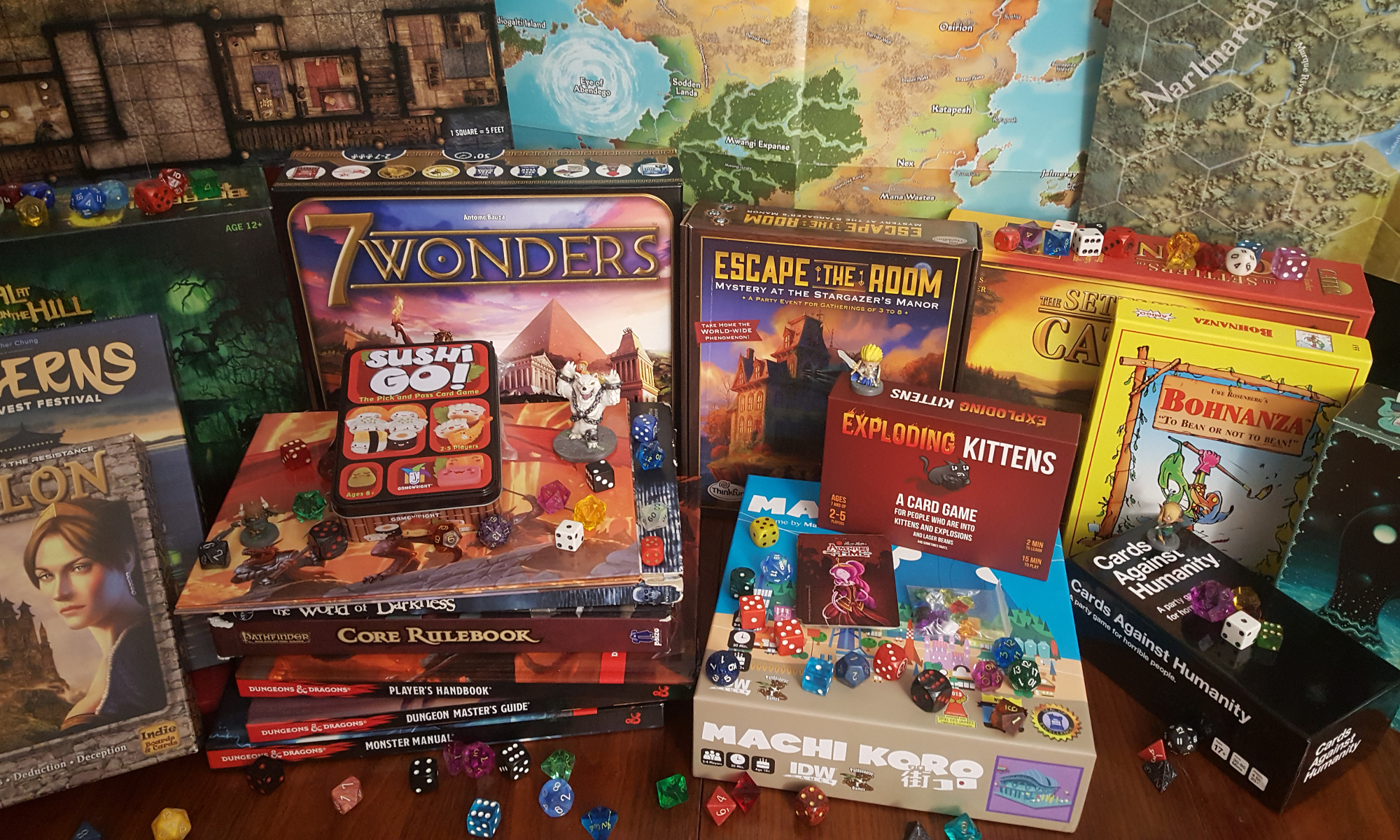Today’s episode deals with the various genres of RPGs, where possible giving examples of games set in those genres. Join us for our discussion of the themes and ideas underlying the games we play. Also, welcome back from GenCon, to all those who attended the convention!
As an excellent example of our postulate that genre means different things to different people, I just finished read the excellent book Save the Cat Writes a Novel, which has its own unique take on genres. Rather than categorizing the stories by the setting or the broad themes of the stories, the genre system author Jessica Brody suggests is one where the theme of the story – that is, the arc it follows – is what determines which category it occupies. Some of the examples include the Superhero (an extraordinary hero in an ordinary world), the Rite of Passage (a hero enduring hardship due to the common challenges of life), the Golden Fleece (a hero goes on a “road trip” in search of something) and the Fool Triumphant (an underdog hero perseveres against the establishment). While it would be foolish to try to use these genres to categorize the broader games and settings of roleplaying games, I don’t think there’s a DM alive that could not benefit from expanding and refining their repertoire by considering the nature of the stories they want their players to be part of, and a treatise on novel writing might well be a great place to do so.
But back to our more common definition of genre: when we think of the most common role playing games – D&D / Pathfinder, World of Darkness, Shadowrun, Call of Cthulhu, Starfinder – it’s generally easy to categorize them (Fantasy, Horror, Cyberpunk (with Fantasy elements), Cosmic Horror and Sci-Fi, respectively). While crossover genre games are possible, the focuses are pretty tight. Generic systems like GURPS, FATE, d6, Unisystem and Savage Worlds all fit into whatever genre the group decides they want to play, which is a mixed blessing, since games tailor made to specific genres tend to do a better job of representing the tropes and most common elements of those genres. These games are approachable, accessible and have fairly large online and offline communities of players.
However, one thing we hope to do here at Save Vs. Rant, is to convince you to step out of your comfort zone and try something new, so I’d like to take a moment to suggest a few genuinely unique (and unusual) RPGs that fall outside the common narratives.
Cavemaster is a Stonepunk RPG (yes, that’s right – stone-age punk) that uses unique resolution mechanics. While the game is a complete RPG with all the elements one would expect, it features some truly original ideas and an amusing tongue-in-cheek premise for its system: the game is intended to be playable using only things that our early homo habilis ancestors would have on hand and, as such, is a diceless RPG that requires no written language to play. The basic resolution mechanic involves concealing stones equal to your total attribute in your right and left hand and having your opponent pick one hand.
Rogue Trader and Dark Heresy are both set in the Grimdark world of Warhammer 40,000, a game about the distant future of mankind. Set in a universe replete with cosmic horror, fearsome aliens, terrifying demons, sadistic orks and cruel commandants, the games are different in their focus (Rogue Trader being about the titular unaffiliated merchants while Dark Heresy is primarily about The Empire of Mankind’s Inquisition), they feature the same general vibe and simultaneous sense of the importance of the player characters in relation to the events of the story but complete unimportance in the grand arc of the universe itself.
Paranoia, originally by West End Games and more recently revised by Mongoose Publishing, is a classic dystopian sci-fi game where the players take on the roles of Troubleshooters working in Alpha Complex under the watchful eye of the all-knowing Computer. Troubleshooters are literally there to shoot trouble, whether that trouble be wayward mutants (which they troubleshooters almost certainly are), members of secret societies (also things the Troubleshooters almost certainly are), and other threats to the livelihood of the complex (which the Troubleshooters almost certainly are).
Gamma World is a humorous take on the post-apocalyptic setting, and plays things both bizarre and awesome. While I often rag on 4th Edition for miserably failing to be D&D, the 4th Edition-derived revision of Gamma World was not only exceptionally playable, but also had some of the most amusing randomized character creation rules I have ever seen (in what other game can you roll up a character that’s a sentient swarm of kittens that can shoot lasers?).
Fiasco, as we’ve mentioned before, is basically a Coen Bros movie played as an RPG (with an upcoming card-based adaptation still up for backing on kickstarter as of the publication of this blog post). Coen Bros films are somewhat famous for both mixing genres (Burn After Reading, being a Spy-Dark Comedy-Farce-Drama) and playing them straight (The Ballad of Buster Scruggs runs the gamut of Western). That experience can be captured as well in a good game of Fiasco, which is streamlined for satisfying one-offs.
Whatever games you decide work best with your group, we hope you’ll consider trying something outside the usual. Weird is wonderful, and we think everyone could use something a little different from time to time.

